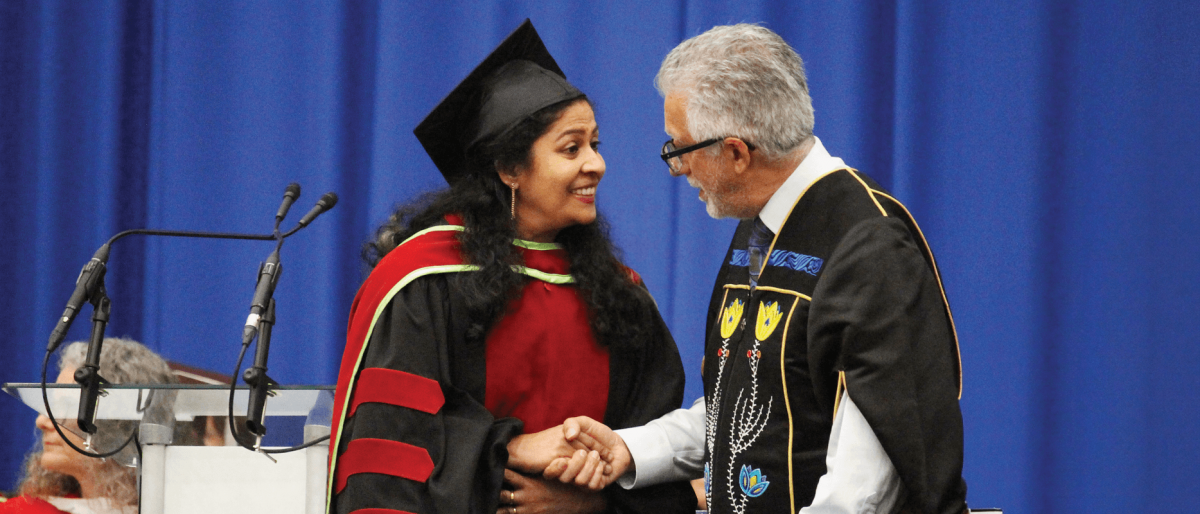
Difficult Discussions
For nurse practitioner Preetha Krishnan [BN/03, MN/07, PhD/23], deprescribing – the process of reducing or eliminating a medication to improve a patient’s health – is just as important as prescribing.
But it’s a difficult topic that is not discussed enough in the health-care system, she says.
“We’re taught to prescribe medications, but rarely taught to deprescribe. We should be looking at the overall picture to see whether the pill is really needed.”
Krishnan recently became a three-time UM alumna. She received her PhD in nursing at Spring Convocation 2023, making her only the second nurse practitioner to earn a doctorate at UM.
Back in 2007, Krishnan was the first full-time nurse practitioner to work at a long-term care facility in Manitoba. She decided to focus on reducing antipsychotic medications that had been prescribed to residents with dementia without a diagnosis of psychosis.
“I would see people who were wheelchair-bound and unable to eat,” she says. “When I started deprescribing these powerful medications, they became more alert. They started eating and walking – even dancing.”
Within two years, the facility’s use of antipsychotic drugs dropped from about 35 per cent of residents to four per cent. This work earned awards for Krishnan, including an order of merit in clinical nursing practice from the Canadian Nurses Association.
Born in India, Krishnan received a degree in medical laboratory technology before moving to Canada with her family in 1997.
The following year, she started the bachelor of nursing program at UM. She returned a few years later to pursue her master’s in the nurse practitioner stream.
“I thought I could provide more holistic care by applying nursing and medical knowledge together,” she recalls. “I could advocate for my patients, involve patients and their families in decision-making, and enhance their overall satisfaction and outcomes.”
Now that she holds a PhD in nursing, she says, she can bridge the gap between clinical practice and scientific research.
“My dual role as a nurse practitioner and researcher enables me to address research questions that arise directly from my clinical practice. I can identify gaps in knowledge, develop research proposals and implement studies.”
Krishnan’s thesis research for her just-completed PhD explored another uncomfortable topic: advance care planning (ACP).
“In health care, we are often scared of death and think of it as a failure,” she says. “We don’t see it as a natural part of life. In general, health care is good at staving off death, but not at knowing when to focus instead on letting patients die with dignity.”
Her qualitative study looked at long-term care nurses’ experiences with ACP.
She found that health-care providers and residents/families rarely agree when it comes to end-of-life care. But nurses orchestrate comfort by getting everyone on the same page.
Krishnan, who works at Misericordia Health Centre, will be sharing her recommendations with senior leaders at the Winnipeg Regional Health Authority. Its current ACP policy has not been re-evaluated in more than 20 years, she says.
She also plans to share her findings with health-care education program leaders.
“ACP should be taught to every member of the health-care team and across the system, with the same education and language,” she says.






